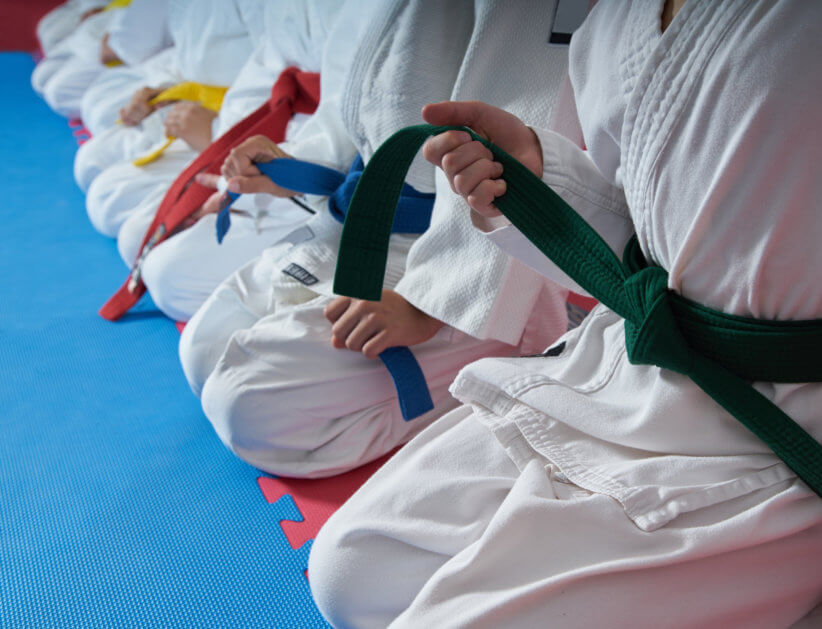Whether you are the parent of an athlete or a parent coach, the concept should be the same — to make sure kids are having fun, developing skills, and staying safe.
“My simple message is for the kids to have fun and know that it is not about winning,” said Joseph Amatore, president of the Dyker Heights Athletic Association. The organization’s purpose and main objective is to cherish, sustain, and promote good citizenship, sportsmanship, loyalty, honesty, and character in the youth, and Amatore finds that sadly, it can be a challenge. “You see a lot of coaches, parents and kids forgetting that it is about fun and not just about winning.”
He suggests that parents not overdo things and to plan to have at least one day off per week from a sport to allow the body to recover.
Getting back to basics comes easy when you put health and safety first. This means understanding the alarming statistics and taking appropriate action like educating your child, teammates, and coaches about the importance of making sure he has the right attitude and protection to do his best.
“We know that 2.6 million kids up through age 19 will have to receive medical treatment for some kind of sports or recreational injury, and that is too many,” said Rosemarie Ennis, director of New York State Safe Kids. By maintaining open dialogue with your child, you can eliminate some troubles right away. “The parent has to know to encourage their child to communicate any pain, injury, or feelings of illness that he may have during or after any sports played or practiced.”
Speaking up can be tough for kids. “They have to be smart enough to know that if they are not feeling well, that they need to tell the coach to stay out of the game,” said Ennis. It is always better to miss one game than an entire season.
Hydration is essential and parents should be attentive to that. “Water is always the best, but I encourage plenty of fluids 30 minutes before the activity and at least every 15 to 20 minutes during the game,” said Ennis.
Quenching thirst is just one task to check off your to-do list before the game.
“If it is a physical sport, parents should be able to make sure there is time set aside before any practice or game for the child to warm-up, which should include stretching before and relieving muscle tension to help prevent such injuries as muscle tears, sprain, strain and fracture,” said Ennis. Coaches should promote stretching as well.
Do not be afraid to talk about concussions with your child — and whoever is coaching the sport must know the signs and symptoms.
“Any head injury should be closely watched and monitored for slurred speech, any indication of dizziness, or vomiting, since those are signs of concussion and anybody who is involved in sports should know CPR and basic first aid,” said Ennis. Let your child know that accidents do happen and, obviously, the more contact in a sport, the greater the risk of traumatic injury.
“Children should not hide concussions from their parents, and they should be given time to recover,” said Ennis. Complications can be serious.
“Adults should look for any kind of balance problem, double vision, sensitivity to light, concentration problems or confusion,” advised Ennis. Concussions should never be taken lightly, and the child should always consult with a physician before returning to the field.
Preparedness makes a difference. “Have the appropriate sports gear and equipment and know how to utilize it,” said Ennis. It should fit properly and include pads for the neck, shoulder, elbow, chest, knee, and shin. Wear helmets, mouthpieces, face guards, and eyewear as appropriate for the sport. Conditioning exercises during practice strengthens muscles used in play but does not protect you from injury. Stretching can keep you in better shape and increase flexibility. Always follow these rules: stop the activity if there is pain, wear light clothing, and stop practices or competitions during high heat or humidity. Heat-related illness is a common problem that athletes encounter.
It is perfectly acceptable to take time outs when needed. “Make sure that if your child has a concussion that he does not return to play until such time as a healthcare professional has given approval for him to return, because he needs time to recover,” said Ennis. Any time a child is not feeling well, he should not be questioned and should be allowed to sit out.
Remember that you play a vital role as a parent and should keep sports pressure-free. A lot of kids feel that they must win, which can be a big burden with lots of undue emotional stress. The American Academy of Pediatrics said that kids should be rewarded for trying hard and for improving their skills rather than punished or criticized for losing a game or competition, because the main goal should be to have fun and learn lifelong physical activity skills.
Jamie Lober, author of Pink Power (www.getpinkpower.com), is dedicated to providing information on women’s and pediatric health topics. She can be reached at [email protected].
© 2013 Jamie Lober





















